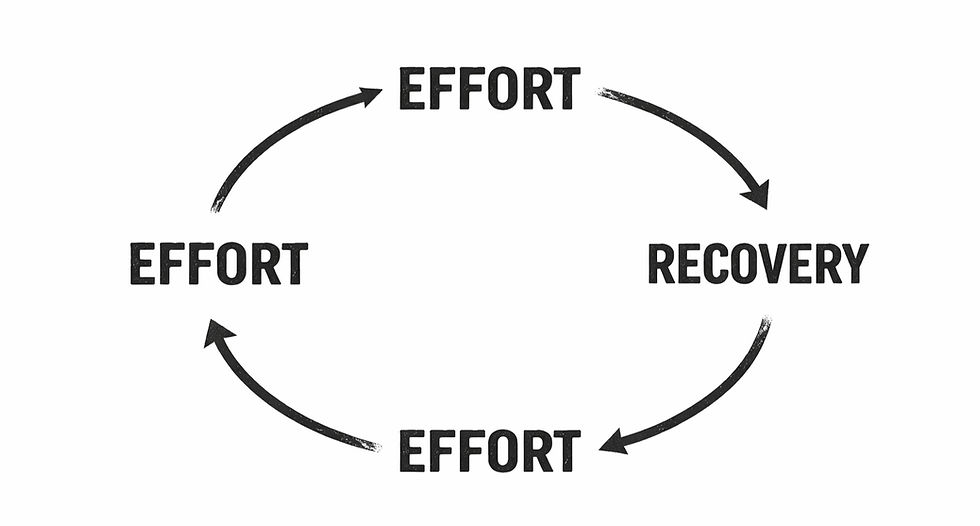Sleep and Mental Health: A Two-Way Street
- Lauren Lee
- Mar 13, 2025
- 3 min read
Updated: Mar 15, 2025
Welcome to the third blog of Brain Behind Behavior where we dive into the science of the mind! Today we will hone in on the vital relationship between mental health and sleep.
Although it can be tempting to stay up late and eschew routine, doing so comes at a dangerous cost. Sleep deprivation affects brain function and exacerbates mental health issues, while mental health struggles like anxiety often disturb sleep patterns. Follow along to learn science-backed tips for better sleep!
Sleep had always been an immense concern before COVID-19, but when the pandemic hit and the world as we knew it came crashing down, sleep became an increasing problem for Americans. According to the Sleep Medicine study, one in three people out of 22,330 international participants struggled with clinical insomnia symptoms, 20% had insomnia disorder, and sleep disturbance rates have elevated psychological distress levels and mental health declines, including a rise in anxiety and depression. Clinical psychologist Elizabeth Blake Zakarin from the Columbia University Clinic for Anxiety and Related Disorders explains that "just like our electronics need to be charged, sleep may recharge or reset the brain to optimize functioning."
Why is sleep important?
Sleep is crucial to multiple brain and body functions. It helps us to process daily events and regulate our emotions and behaviors. This is why we often feel rejuvenated and energized after a good night's sleep in comparison to feeling worn out, disoriented, and stressed when we don't. Getting optimal amounts of sleep each day also maintains our brain cognition that controls things like attention, memory, and learning.
As someone who highly prioritizes schoolwork above all else in life, I used to view sleep as being expendable, something that I could sacrifice. It's worth it, I would tell myself as I studied at my desk at 4am in the morning. My grades are more important than my sleep.
This is entirely wrong. And yet, sacrificing sleep is a mistake that many students tend to make, unbeknownst of the severe ramifications that it effectuates on brain and body health. Not only are we left feeling physically exhausted, insufficient sleep increases our negative emotional responses and decreases our positive emotions. It also makes it difficult to cope with seemingly minor stresses and impacts the accuracy of our perception of the world around us.
How does sleep deprivation affect my mental health?
Getting poor-quality sleep or inadequate sleep raises the risk of developing various mental health disorders such as depression, anxiety, and, in extreme cases, suicidal ideation. Sleep problems also enhances pre-existing mental conditions, exacerbating psychiatric symptoms and raising the severity of mental illnesses. Additionally, inadequate sleep inhibits the brain's ability to form long-term memories, reduces people's ability to concentrate, and heightens stress levels throughout the day. Ultimately, the effects of sleep deprivation are devastating. It impairs memory, weakens the immune system, and increases the risk of Alzheimer's Disease. It is imperative that we give ourselves enough sleep in order to protect and prioritize our well-being. Sleep and mental health is, simply put, a two-way street. Both sides work in tandem with one another: Bad sleep can cause mental health problems or worsen pre-existing mental issues whereas good sleep will improve emotional health and mental wellbeing.
Tips:
(1) Maintain a consistent sleep schedule. Keeping a regular routine is key to creating good sleep habits and getting adequate, healthy, and high-quality sleep.
(2) Avoid looking at the screen at least 1 hour before you sleep. Blue light obstructs the quality of your sleep because it fools the brain into believing it is daytime rather than nighttime, preventing the body from releasing melatonin, a primary sleep hormone.
(3) Teenagers need 8-10 hours of sleep, adults require 7-9 hours, and older adults (ages 65+) need 7-8 hours. Consistently getting enough sleep is essential to your brain development and cognition.
(4) Instead of sleeping late and waking up late, practice sleeping early and waking up early (morning time is when our brains function the most optimally). Sleeping and waking earlier is proven to reduce chances of developing depression, anxiety, and mood disorders.
Final Note:
Your sleep is one of the top determinants and contributors of your health. It is crucial that you prioritize your sleep in order to allow your physical, mental, and psychological health to be at its best!





Comments